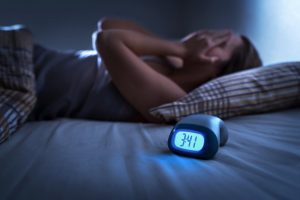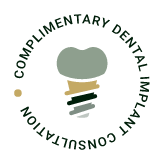 What’s keeping you from sleeping soundly? If you have sleep apnea in Spring Lake, chances are you’re waking up repeatedly throughout the night and experiencing daily daytime fatigue. While these somewhat annoying symptoms may be easy to blow off, it’s important not to ignore them. In fact, a lack of quality sleep can have a significant influence on several aspects of your life. Read on to learn more about how interrupted sleep can impact the rest of your body.
What’s keeping you from sleeping soundly? If you have sleep apnea in Spring Lake, chances are you’re waking up repeatedly throughout the night and experiencing daily daytime fatigue. While these somewhat annoying symptoms may be easy to blow off, it’s important not to ignore them. In fact, a lack of quality sleep can have a significant influence on several aspects of your life. Read on to learn more about how interrupted sleep can impact the rest of your body.
How Much Sleep Do You Need?
There is still a lot we don’t know about sleep. Nonetheless, health experts agree that getting enough rest is crucial to a variety of biological processes. How much sleep a body needs to feel rested varies from person to person at different ages. According to the National Sleep Foundation, the approximate amount needed can be broken into several key stages of life:
- Infants: 12-15 hour
- Toddlers (1-5 years old): 10-13 hours
- Children (6-13 years old): 9-11 hours
- Teenagers (14-18 years old): 8-10 hours
- Adults (18-64 years old): 7-9 hours
- Older adults (65+ years): 7-8 hours
How Interrupted Sleep Impacts Your Life
Whether it’s due to stress, sickness, work, or a crying baby, everyone’s experienced the negative side effects of a poor night’s sleep. However, numerous studies indicate that regularly interrupted sleep can have a significant impact on the rest of the body, including:
- Memory issues
- Lack of attentiveness
- Unbalanced mood
- High blood pressure
- Weakened immune system
- Increased risk of conditions like diabetes and heart disease
How to Start Resting Well
Unfortunately, there are countless factors that can cause interrupted sleep, and therefore no one-size-fits-all solution. However, if you are one of the 22 million American adults who suffers from obstructive sleep apnea, your Spring Lake dentist can help. Obstructive sleep apnea (OSA) is a condition where the muscles in the back of your throat loosen and collapse as you sleep. This obstructs your airway and causes you to periodically stop breathing. As a result, your night’s rest is disrupted by gasping, choking, and loud snoring.
Your dentist probably isn’t the first professional who comes to mind when thinking about treating your sleeping disorder. However, they have extensive knowledge of your oral structures and how they affect your airways. After evaluating the results of your sleep study, they can help you choose a treatment that fits your lifestyle. Depending on your unique situation, you may need oral appliance therapy, CPAP, or a combination of the two in order to breathe properly while you sleep.
Don’t let interrupted sleep from obstructive sleep apnea diminish your overall health and quality of life. Talk to your Spring Lake dentist today and start resting easy!
About the Author
Dr. Edward J. Dooley has been serving the smiles of Spring Lake, NJ and the surrounding communities from his own private practice since 1986. As an active member of several prestigious organizations like the American Dental Association, the Monmouth Ocean Dental Society, and the International Association for Orthodontics, he stays current with all the latest advancements in dentistry. He has completed countless hours of continuing education in a variety of advanced topics and earned numerous certificates in specialized techniques. He is proud to offer custom oral application therapy, traditional CPAP, and combination therapy to those suffering with sleep apnea. To learn more, he can be contacted via his website or at (972) 495-8100.


